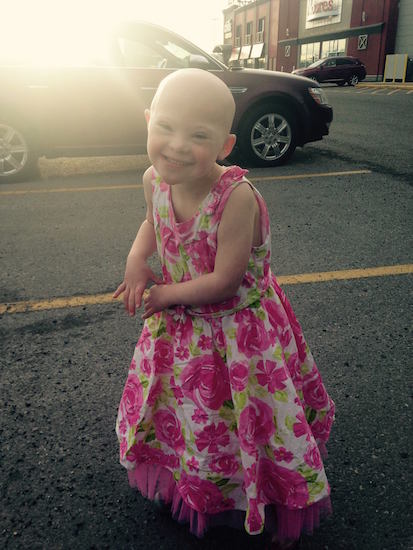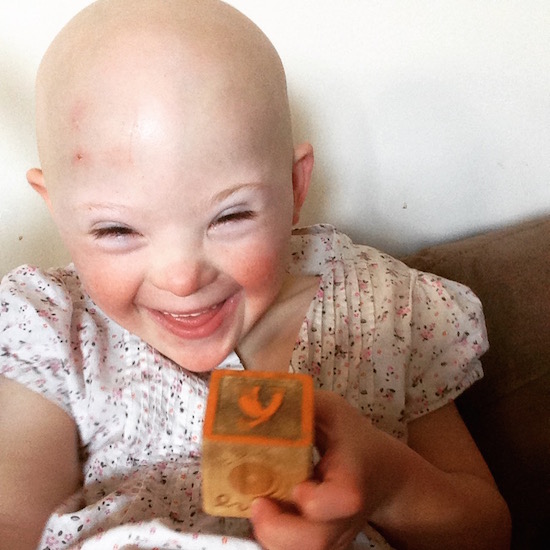To My Daughter's Teacher, From 'That' Parent
Dear Teacher,
I’m sorry I’m “that” parent. That parent who calls, emails and sends notes in the agenda asking about how my child, Phoenix, is keeping up with the expectations of the classroom. That parent who asks you for the names of the kids Phoenix plays with so we can ask her about her day. That parent who expected the school to be fully prepared to support her on the first day of school and every day thereafter.
Please understand that my expectations for excellence lie not just with you, but with our entire system. As a teacher myself, I can understand the difficulty of achieving balance between meeting the needs of all the students, producing and performing lesson plans, meeting the demands of the administration, coordinating with other professionals like occupational therapists, preparing student agendas and handouts, writing report cards and writing and implementing IPPs (individual program plans).
I know it’s a big job, and I know you’re doing it to the best of your ability.
However, I’d like to tell you about my job.
It’s my job to love, nourish and support this little girl to be the best she can be with the challenges she has been born with. So while you focus on teaching my child the skills she will need to pass this year, I focus on the skills she will need for her lifetime.
I look at barriers like weak hand muscles and poor fine motor skills and think, “Well, we’ll just teach her how to type.” I arrange occupational therapy to help us find ways to modify and adapt clothes to make them easier to put on and take off. I work with Phoenix on reading flashcards, not only to teach her the fundamental skill of reading, but to have her practice speech and articulation daily. I was the one to teach her sign language as a baby to help her communicate her wants and needs before she could speak.
I advocate. I write. I research and I connect with others like me in the Down syndrome community who are blazing a trail, demanding equality for our children.
You see, because Phoenix was born with an extra 21st chromosome, she falls into a group of people who are some of the most marginalized in our entire society. So not only do I worry about her ability to make friends, complete school work and negotiate the education system, I also worry that her inclusion in this very visible group makes her a target for low expectations, preconceived ideas about her competence and outdated ideas about where children like her “belong.”
Did you know there are still administrators and teachers who believe children like Phoenix don’t belong in a classroom of their peers? That it’s a waste of resources to teach a child like Phoenix who may never achieve a high school diploma, go to college or contribute to society in a meaningful way? (Their biases, not mine.) Did you know it’s only within our lifetime that children like Phoenix have been entitled to go to school with their peers?
Did you know that in the generations preceding mine, parents with a child like Phoenix were encouraged to abandon their child in an institution because this child was considered uneducable? That it was doctors and experts who recommended this, and that it was families like mine who pushed back to make this practice unacceptable? Did you know there are places in the world where this practice still happens?
Did you know that these ideas still influence perceptions of children and adults with Down syndrome today? And that adults with disabilities face a large barrier to finding employment?
Dear Teacher, I’m aware of these things.
I’m aware of the prejudices and biases. I know people look at Phoenix and underestimate her abilities and knowledge. People look at Phoenix and they lower their expectations. I see it all the time.
I’m not trying to interfere when I ask to speak to her aide about how things in the classroom are going, or when I question what Phoenix is able to do. I need to know your expectations for what her year looks like are just as high as mine. That you will expect good behavior and use positive incentives to encourage good choices. I need to know you see her as a child who is willing and able to learn — if she is given the right supports to do so.
I’m building this child up to face challenges, meet expectations and feel confident enough to take chances. I’m fostering her loving and accepting nature. I give her hugs, dry her tears of frustration and encourage her to try again. I nurture her spirit.
Dear Teacher, we both have important jobs to do here. My actions and thoughts will always be guided by what I feel is in Phoenix’s best interests.
Follow this journey on Celebrating Phoenix.


